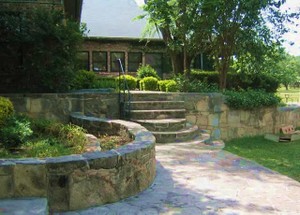Rehabilitation for Impaired Professionals
The Impaired Professionals' Track falls beneath the umbrella of the Adult Program. This track serves male and female clients who have a professional license that may be impacted by their substance use disorder. Others are considered on a case-by-case basis. Clients who have benefited from this track include teachers, physicians, mental health therapists, nurses, and lawyers.
This is a 45-day program; changes in lengths of stay are considered on an individual basis and are based on clinical needs. All clients in the program are assigned a primary case manager and also to a small group to engage in group process. Guests in the Impaired Professionals' Program reside in The Lodge, a 2-story, house-like structure which is separate from the main building. Clients in this track are assigned to a specific case manager and small group.
Treatment modalities:
Individual Counseling is employed for all clients unless clinically contraindicated. Clients meet with their primary counselor at least weekly to engage in individual counseling and personalized treatment planning.
Family Counseling/Family Contact is an integral part of SRC's work. All clients are encouraged to include family members in their treatment through phone calls with counselors, conference calls, live family-sessions, and participation in Family Program.
Group Counseling is a focused group counseling session that deals with issues identified by either clients or counselors. Clients in the Impaired Professionals' Track engage in a track-specific small group enabling them to discuss issues that may be directly related to licensure and other professional issues. These groups are held at least 4 days per week for an hour-and-a-half per session.
Alcohol and Drug Seminar is an educational lecture/discussion session that deals with specific issues pertaining to chemical dependency. Content will vary according to client's needs.
Life Skills Group This group consists of educational lectures/discussions using topics including identifying personal triggers, developing strategies to avoid triggers, identifying personal relapse dynamics and improving and utilizing sober support systems, stress management, coping skills, anxiety, anger, self esteem, and communication.
Spirituality Group deals with spiritual issues that contribute to emotional well-being and a life free of chemical dependency.
Educational Groups are provided to give understanding in areas affecting our daily living and are holistic in approach.
Interpersonal Communication Skills Groups deal with specific problems in verbal and non-verbal communication among people.
Specific Theme Groups are prescribed by the treatment team to meet special client needs which cover such issues as family dynamics of addiction, anger management, addiction transference, dual disorders, relationship addiction/recovery, stress management techniques, and other special topics.
Recreational/Activities Groups These are held daily and are designed to enhance the emotional, physical, and cognitive well-being of our clients. Activities are used that foster interaction among our clients. This may include sports, games, outings, and physical education. Yoga and meditational exercises are offered at least 4 days per week.
Alcoholics Anonymous and Narcotics Anonymous Groups are an integral part of the SRC program. All clients are encouraged to attend both in-house and offsite meetings.
Step Study - "Big Book" is a discussion meeting that addresses the Alcoholics Anonymous, Twelve Steps and Twelve Traditions, and other relative literature. The discussion meetings are educational and therapeutic in nature.
Core Programs:
Detoxification Program:
- Utilizes accepted detox protocols;
- Closely monitors the client's physical functioning;
- Fully staffed with nurses 24/7, daily physician visits and 24 hour on call physician coverage;
- Clients are encouraged to attend daily programming as the physical condition allows.
Residential Program:
- Educates the client and family as to the symptoms and impact of the substance use disorders;
- Staffed with counselors and technicians;
- Fully staffed with nurses 24/7,
- 24 hour on call physician coverage;
- Clients are expected to attend all daily programming.
Day Treatment Program:
- Continue educating the client and family as to the symptoms and impact of the substance use disorders with additional focus on supporting the client's integration back into the home environment and using the coping skills learned in treatment;
- If necessary, clients may arrange to stay on campus 24 hours a day;
- All meals may be taken on campus.
- Staffed with counselors and technicians;
- Nurses administer medications to resident clients;
- Physician is on call.
Intensive Outpatient Program
- Continue educating/assisting the client and family as to methods for improving individual and familial relationships;
- Assists the individual in returning to the work environment and solidifying sober support network;
- Provides a forum to discuss and receive support while coping with daily work stressors.
- Requirements of the outpatient program include:
- attending 12-step recovery meetings,
- obtaining a sponsor,
- being active in working the 12 steps;
- and agreeing to random UA testing.
- Clients are monitored as to their follow-ups with other professional services such as meeting with a therapist or physician.
